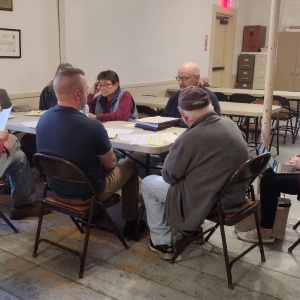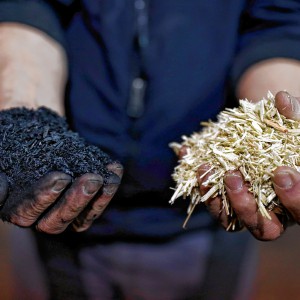Cannabis article for Athol Town Meeting generates questions
| Published: 05-19-2023 3:34 PM |
ATHOL – An article on June’s Town Meeting warrant regarding cannabis businesses is creating some concern with town officials.
Article 22 on the warrant of Athol’s upcoming Annual Town Meeting asks voters to decide on whether to establish a Cannabis Stabilization Fund, a “special purpose stabilization fund for marijuana Host Community Agreement fees.”
Monies for the fund would come from the community impact fees negotiated as part of Host Community Agreements (HCAs) between communities and cannabis-related businesses. Those fees are typically 3 percent of revenues generated by each cannabis retailer, as well as cultivation and manufacturing operations. This money can only be used to mitigate impacts of cannabis businesses. It’s estimated the HCAs will generate an estimated $600,000 in revenue annually for the town.
At present, however, it is unclear whether cities and towns that included these fees in the HCAs will be able to keep anything.
“As with anything in government,” Town Manager Shaun Suhoski told the Athol Daily News, “it’s never as clear as it looks.”
Suhoski is referring to legislation passed last year which removes the authority of municipalities to negotiate community impact fees as part of their HCAs, a power that had been included in the language which legalized the sale of marijuana for recreational use.
Among the other rules of the new law is that the fees cannot be more than 3 percent of the gross sales of the establishment or treatment center and must cease after the eighth year of operation.
“In the Senate version (of the new bill), before they had passed the final language, we had brought to Sen. Comerford and Sen. Gobi’s attention that the legislation included an effective date going back to 2016,” ” Suhoski explained. “That effective date got removed, so when Sen. Comerford says they did not intend the law to be retroactive, that in actuality is what happened. The retroactive effective date was not in the final law that passed.”
Article continues after...
Yesterday's Most Read Articles
The town manager argues that that fact underscores the Legislature’s intent that the new law would not be applied retroactively. However, he said an element that remained allows for these agreements to be reviewed every year by the Cannabis Control Commission as part of the licensing process.
“So, what’s happening now, we’re in this gray area because existing agreements are coming up on their yearly reviews,” said Suhoski. “The CCC has the power, through its regulations, to apply the new law to the old agreements, not withstanding that the legislation was not retroactive.
“This is why cities and towns across the Commonwealth are hopping mad. That’s kind of why we’re in a limbo land. That issue is ongoing.”
Uncertainty over the future of already-negotiated community impact fees, Suhoski argues, does not mean the town shouldn’t move ahead with establishment of the Cannabis Stabilization Fund.
“Irrespective of retroactivity, under the new law, however it impacts existing agreements, we need to be able to account for how we spend the cannabis monies,” Suhoski said. “We need to account at the town level and under the law, should the industries request a review by the CCC or anybody, for transparency and for reporting. If we don’t have this ‘special purpose’ fund, the revenues from these agreements gets mixed into Free Cash.”
If that were the case, said Suhoski, town officials would be left trying to explain why potentially hundreds of thousands of dollars couldn’t be spent on the town. Suhoski said the state has to finalize new regulations stemming from the new law by early November.
“That’s a whole other thing with the retroactivity, and what do you do with the money you already collected,” he said. “We could have a thousand lawsuits across the Commonwealth. Some cities and towns have spent the money. Some, like Boston, said, ‘No problem. We don’t want the money. We’ll just give it back.’ There’s a whole range of commentary on that piece of it.”
Suhoski told the May 9 meeting of the Finance and Warrant Advisory Committee that town officials were cautious when it came to budgeting anticipated revenues from the community impact fees.
“We were conservative in not getting too far out over our skis,” he said.
If voters approve creation of the stabilization fund next month, the town, once it knows exactly how much it has collected in impact fees, will ask voters at the Fall Town Meeting for permission to put those funds into that account.
Suhoski went on to say, “A note for the industry; if they sue us under these (HCAs), under the new law, I would say that’s an impact from the marijuana industry and we’ll use that money to fight them in court. It’s really illogical, what they’re doing.”
Greg Vine can be reached at gvineadn@gmail.com.

 Over $400M in shelter funding, new limits approved
Over $400M in shelter funding, new limits approved Royalston’s FinCom debates proposed salary increases
Royalston’s FinCom debates proposed salary increases PHOTO: Spectacular spire
PHOTO: Spectacular spire Locking up carbon for good: Easthampton inventor’s CO2 removal system turns biomass into biochar
Locking up carbon for good: Easthampton inventor’s CO2 removal system turns biomass into biochar